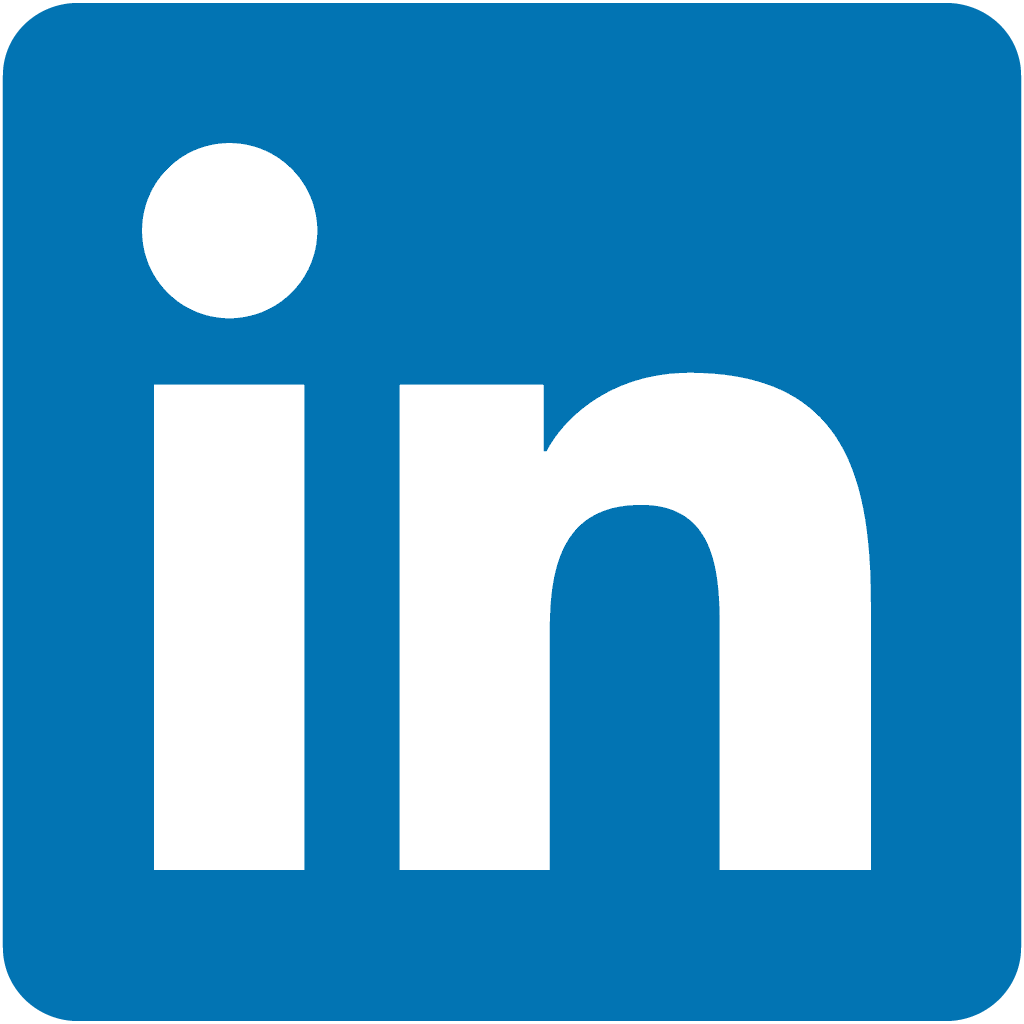
How We Launched A Six-Figure Startup Consulting Business With 100% YoY Growth [Since 2017]
Hello! Who are you and what business did you start?
My name is Jeremy Imlach, I am a CoFounder and the CEO of Argona Partners. Argona is a strategic consulting and startup development firm. We focus on three areas of success; Financial Health, Growth Strategy, and Fundraising Readiness.
We work with early-stage impact technology companies that are striving to make a difference in the environment and local communities. The mindset that I’ve taken on through my journey thus far has been that passion and commitment drive success.
Since the company’s inception in 2017, Argona has grown revenue +100% YoY as well as been recognized as both a National and Global Top Startup Consulting Firm.


What's your backstory and how did you come up with the idea?
I was brought on to help start Argona at its very beginning stages but was lucky enough to be in the right room at the right time with my brilliant CoFounder, Amadin Agho. Amadin then introduced me to the also brilliant Argona Founder, Richard Anderson III. At that time, we were all bright-eyed and bushy-tailed college graduates looking for our chance to develop our careers and make an impact.
We had all caught the entrepreneurial bug throughout college and knew that there were plenty of great ideas out there that just needed a bit of help to scale to market. We noticed this problem specifically through the higher education system - how many scientists and engineers would design and patent impactful technologies, but then sputter out of existence trying to scale the concept as a business.
We knew we were on the right track because of both the feedback we were receiving from the market we were consistently directly interacting with, as well as the projects and deals we were landing with founders and entrepreneurs. We consistently were hearing our clients and prospects say things like “Where have you been? I’ve needed you for so long!” Due to our model, we were capable of building our portfolio by offering equity discounts on our services. This gave confidence to Founders that we were bought into the success of their company.
We all started working on Argona as a ‘gig’, developing the brand, messaging, channels, and everything needed to answer the question “How do people who need our help find us?”. This early mentality gave us a great advantage when it came to Search Engine Optimization as well as Brand Placement within the competitive landscape. Once we reached a place of consistent revenue, we ditched our ‘day jobs and took on the Argona beast as our full-time roles. This was a big step because we had proven the concept and now had the confidence to create a successful operation.
Take us through the process of designing your service
When creating Argona Partners and deciding on exactly what we wanted to offer and how first and foremost we had direct conversations with founders and entrepreneurs of early-stage CleanTech companies to understand what their biggest pain points were in scaling their technologies to market. This gave us a very clear definition of the problem to solve and the solution to offer. However, we thought this applied to Founders across the board.
One of the biggest learning moments we had and taught us how to remain agile, was when we moved from an equity to a revenue model. Due to our wide array of service offerings, across a wide range of industry verticals - we began to sputter. We ultimately confused the market. ‘Who is this for?’, and ‘how will this benefit me?’ were some of the questions we started receiving. We knew we had to pivot and fast.
We started focusing on the ‘Good to Great’ framework presented by Jim Collins; and honed in on what we did best - Growth Strategy and Fundraising Readiness. We removed the excess offers, narrowed our targeting, and defined our segmentation. Our initial offer was much more casual; we wanted to customize every opportunity because, as we all know, the startup realm can be ambiguous. We started to niche from all entrepreneurs to specifically focus on impact technology startups that are raising Seed or Series A funds.
Our pricing model was originally extremely customized and ambiguous as well, including offering discounts. Since then, we have narrowed our product offerings to more specific, and pre-valued services. This way, we don’t need to customize our pricing every single time an entrepreneur needs our help, and we can focus on helping them for the value we know the market is willing to pay. From there, it was obvious that the market was more receptive to what we offered.
Describe the process of launching the business.
Our launch strategy was centered around utilizing the portfolio we had built with our equity-based clients - think of this as ‘alpha and beta testing - and generated a referral system. The strong portfolio paired with a referral system enabled us to begin testing different marketing channels and messaging.
We focused on finding specific channels that would generate immediate brand awareness, rather than attempting paid ads immediately. We started to see more customers once we began showcasing authority and brand trust through reviews, referrals, and thought leadership-driven content. Our content was focused on providing free advice, guides, and additional content that allowed us to prove ourselves as knowledgeable resources within the market, and a brand that entrepreneurs can trust. To do this, first, we needed to understand WHAT people want to know. This required a bit of online research, but even more powerful was speaking to our customer base.
We began running an Ask Me Anything series, in which anyone could submit a direct question to Argona for us to answer, completely free. This gave us direct insight into the largest problems our target audience was facing, as well as the knowledge they wanted to gain from us. From there, we recorded video content that answered their questions and promoted their business along with the video across platforms - which further expanded our audience.
When it came to our website development, this has been something in constant development over the years. We’ve probably had about 4 website versions, and the reason being is because we’re always tailoring to both performance and calls to action. This way, we can focus on traffic and conversions.
Don’t spend too much time and money trying to build a product that you haven’t market-tested. Don’t engage in ‘Random Acts of Marketing’ - instead hypothesize, test, and adjust.
Due to the nature of our business model, our overhead was extremely low to start. We truly bootstrapped the hell out of this thing. We initially put about $5K in each through the early stages of development, but otherwise had the revenue to fund the rest of the overhead. Since then, we have developed debt.
The biggest lesson from our launch was to remain agile. The market responded unexpectedly, or against our hypothesis, that we would be able to offer similar services across industries for given stages. While our hypothesis wasn’t completely false, it was obvious we had to define our offers a bit more. From there we focused on developing content that is geared towards offering insight into specific problems and solutions that we have found to be the biggest market opportunities.
We continue to learn each day through the content we push, and the research we conduct. The research includes understanding what topics, keywords, and hashtags are trending; as well as competitive analysis to understand their content generation, audience engagement, and SEO opportunities.
Some of the biggest tools that have helped us through this process are Google Analytics and Search Console, along with SEMRush. There are a TON of SEO and keyword tools out there, but these 3 free resources gave us an idea of what to begin targeting. We would review this once a week during our marketing meetings, to confirm we were headed in the right direction - the concept being “let’s fail (and learn) fast”.
Since then, we have signed up with Demandwell as a paid product, and have been using that recently to focus on non-branded content to rank higher on Google for the top queries of our target audience.
Since launch, what has worked to attract and retain customers?
To attract customers, we have focused on what is capable of capturing an audience, instead of what we assume will perform, and due to this, we can generate more content and in turn collect more data. Not every piece of content performs, but that’s where marketing and testing come in. Successful marketing campaigns have been focused on branded content that we scale on different channels depending on the segment.
In regards to retaining customers and bringing customers back into the funnel, we move them into a special ‘nurture’ bucket. Here we offer free resources, and advice, and keep our client relations strong through account-based marketing methods. We also test between omnichannel and multichannel approaches to better understand how our audience interacts with our content. This includes relevant A/B testing.
A majority of our traffic is brought in through Organic and Referral channels. Having strong referrals and backlinks that rank on the first page has been extremely important for us. While our page may not rank for all of the keywords we’d like - these referral links do. So we are still able to capture the audience. Even better, oftentimes the traffic coming from these channels are already in the consideration phase. We're currently scaling paid ads.
We started by running awareness campaigns in which we developed a stronger understanding of the target audience that was seeing and clicking on our Ads. Now that we have that data, we will curate a lead generation campaign with the findings from the awareness campaigns. Our email and social media efforts are spent segmenting and creating content to target the awareness phase; that is to help our audience define the problems they have and the goals they want to develop.
How are you doing today and what does the future look like?
Argona Partners continues to experience profitable growth, and our future is looking bright!
Our typical contract value allows for a higher Customer Acquisition Cost (CAC); though this is not always the case. Due to this, we review our marketing budget once a quarter to scale specific channels/content either up or down. Our business model typically gives us a gross margin of 50-75%, depending on contractor participation on a per-project basis. This makes projections a little difficult, and so we have to weigh specific projects differently to adjust assumptions.
When it comes to site traffic, we developed a Google Analytics dashboard that you can implement, just click here. We focus on understanding the behavior flow from specific channels; or in other words, ‘how are people interacting with our site when they come from different channels?’.
To qualify leads, we developed a qualification system through our CRM. Once prospects take specific steps, for example interacting with a certain amount of content, spending a certain amount of time on the website, etc. - we follow up with a specific drip campaign per lifecycle stage. Each lifecycle stage has its qualifications, or in other words, prospects have qualified themselves depending on the amount and type of interactions they’ve had.
We have developed an Omnichannel approach that leads all prospects from every channel through the same funnel and onboarding process. This was made possible through the nature of our business model, as well as the strategic expansion of channels into the system, rather than adding multiple channels at once.
Operations within Argona Partners are extremely straightforward, as it only takes 4 of us to run the entirety of the business. Of course, this will grow over time - but we’ve developed a collaborative approach to our framework. I call it a ‘Hybrid Model’ approach, derived from structural management concepts. The idea is the ability to allocate different resources across multiple projects given the priorities of the company to achieve the goals at hand.
We’re on the verge of launching a ‘Fundraising Readiness Course’ - that name is unofficial - which will lead founders and entrepreneurs through a self-guided three-week course. This will accelerate their fundraising efforts by developing a strategy for the campaign, the collateral they’ll need, and targets to pursue.
Our short-term goals for Argona include developing a curriculum for fundraising readiness that is both accelerated and self-led. Therefore allows founders to develop top-tier collateral and campaigns to accelerate fundraising efforts.
Long term, we will become a full-fledged Startup Studio that is Venture-backed. This concept will allow us to operate as a self-sufficient ecosystem between entrepreneurs, business experts, and investors.
Through starting the business, have you learned anything particularly helpful or advantageous?
Partnerships have been an enormous catalyst to our success. At first, we were eager to partner with anyone that popped up in our inbox. We quickly realized that this was both not sustainable and was realistically a waste of time. So, we immediately focused on limiting our partnerships to revenue-generating and community-building, to better support our client's needs outside of the services we offer. This allowed us to become a ‘centralized hub’ for not only our clients but our partners' clients - and their network too.
Obviously, as with everyone, COVID severely impacted our opportunities to generate revenue. While we were able to generate more awareness during this time, conversions went down (which is to be expected), and we were not seeing the rates through the entirety of the sales funnel that we would normally expect or hope for. Our messaging and offers were adapted to fit the market needs; most of the time more tailored authority/trust content was necessary to convert MQL and SQL. This is really where we started focusing on account-based marketing, to an extent.
Being an entrepreneur shouldn’t mean weighting the world on your shoulders.
The skillset that has helped the most to develop Argona has been to understand the derivative of the obstacles that businesses are facing. Oftentimes, the perceived obstacle or problem that a business is facing is just the tip of the iceberg. However, being stuck inside the iceberg doesn’t help founders understand the size, shape, etc.
This is where we come in. For example, a Founder might tell us ‘My problem is that we need to raise funds.’ This is a common problem that almost every startup faces. However, this problem derives from required priorities; such as market validation or traction development. Having a skilled outside perspective to identify the gaps and opportunities for individual businesses is by far the largest opportunity for Argona Partners.
What platform/tools do you use for your business?
The tools we use every day are Slack, Google Drive, and Trello.
There are various tools we use for other operations, such as our CRM (Hubspot) and analytics platform, but there’s truly nothing special about our TechStack. We’ve done a great job of building an infrastructure meant for a remote model, and so by keeping access and tools to a minimum, we’ve de-risked remote collaboration.
What have been the most influential books, podcasts, or other resources?
One book that sincerely influenced the entire team was Good to Great by Jim Collins. It has given us a clear vision of how we can structure our vision to scale from scratch to revenue.
There are also a few influential podcasts, including ‘The COO Roundtable’ and ‘Entrepreneurs on Fire’.
Advice for other entrepreneurs who want to get started or are just starting out?
There are a lot of time and money wasters that show up when you’re starting a business, and you need to focus on generating revenue. Don’t spend too much time and money trying to build a product that you haven’t market-tested. Don’t engage in ‘Random Acts of Marketing’ - instead hypothesize, test, and adjust.
Common mistakes that we often see founders make are; being unaware of their financial health, being unaware of their economic drivers, not listening to what the market is telling them, and not remaining agile. Even further, we consistently see founders' mistakes that they have a vision of a solution everyone will want. There are two problems with this mindset; one is that each opinion is one amongst billions, and two is that this reduces your ability to remain agile and respond to the market.
Being an entrepreneur requires having the entrepreneurial spirit, and oftentimes this can be a lonely and harrowing journey. This is why we developed Argona. We’re here to help. Being an entrepreneur shouldn’t mean weighting the world on your shoulders, and together we believe that we can build a truly inspirational and impactful community.
Where can we go to learn more?
To learn more about Argona Partners, please visit the website.
Contact us at [email protected].
Follow us on Social Media:

Download the report and join our email newsletter packed with business ideas and money-making opportunities, backed by real-life case studies.

Download the report and join our email newsletter packed with business ideas and money-making opportunities, backed by real-life case studies.

Download the report and join our email newsletter packed with business ideas and money-making opportunities, backed by real-life case studies.

Download the report and join our email newsletter packed with business ideas and money-making opportunities, backed by real-life case studies.

Download the report and join our email newsletter packed with business ideas and money-making opportunities, backed by real-life case studies.

Download the report and join our email newsletter packed with business ideas and money-making opportunities, backed by real-life case studies.

Download the report and join our email newsletter packed with business ideas and money-making opportunities, backed by real-life case studies.

Download the report and join our email newsletter packed with business ideas and money-making opportunities, backed by real-life case studies.






















